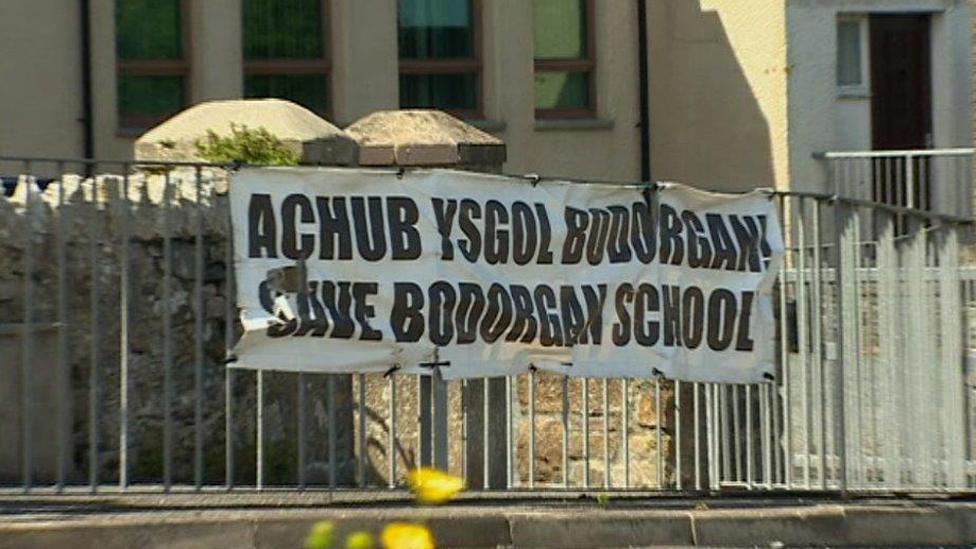Video learning in schools: More pupils to be taught via remote link
- Published

School pupils living in remote areas of Wales are being offered the chance to take part in lessons via video link.
It follows a trial in Ceredigion in 2018 and will give pupils from one school the ability to join classes at other schools.
The technology means secondary school students aged between 14 to 19 will have access to a greater range of subjects and teachers.
The E-sgol project will roll out to schools in Carmarthenshire and Powys.
Those behind the scheme said it had been positive for pupils, despite some "scepticism".
The concept was first adopted in Scotland, external, with a project allowing interactive teaching to take place across several sites in remote areas, such as the Outer Hebrides.
It uses video technology to connect classrooms, so pupils from one school can join classes at others and teachers can give live feedback.
As well as connecting schools, it is hoped it can create links with universities to provide "enrichment sessions" for AS and A-level pupils.
So far, 102 pupils have studied 18 subjects in Wales, including further mathematics, criminology, politics and Mandarin, with lessons available in English and Welsh.

How well do video link lessons work in practice?
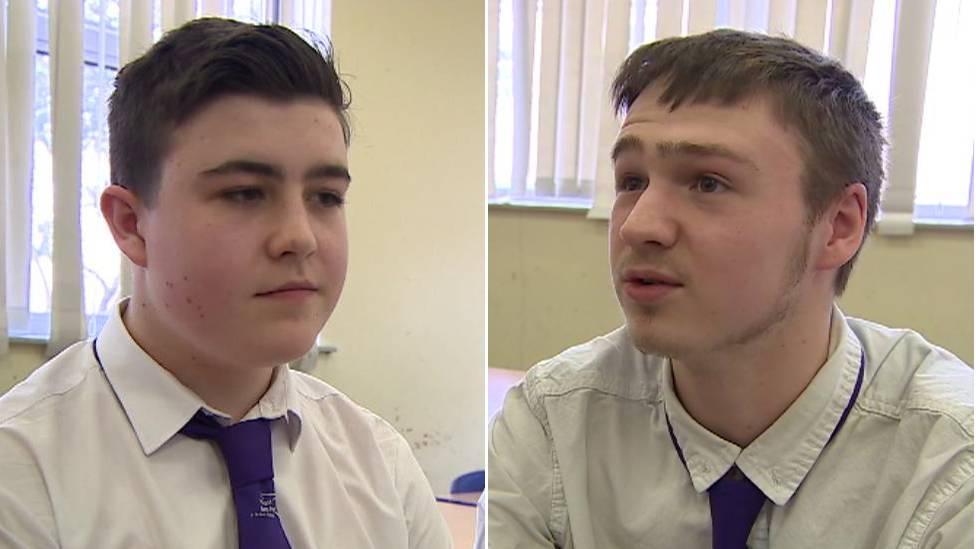
James (l) and Jasey are both in Year 12 at Ysgol Bro Pedr in Lampeter
James and Jasey are students at Ysgol Bro Pedr in Lampeter, Ceredigion, where the scheme is running.
James said it certainly opened "up a lot of opportunities" for students in schools that do not have access to teachers who specialise in certain subjects.
His school has specialists in subjects such as maths, physics and computer science, but the video link meant other schools benefitted.
However, Jasey said lessons taught via video link can have a different feel to traditional ones with the teacher in the room.
"It doesn't feel the same as a normal lesson to me, just because I guess there is less interaction," he added.
"But the teacher is still helpful, listens out and asks questions."
He said, after some initial teething problems, the video link lessons now "go smoothly".

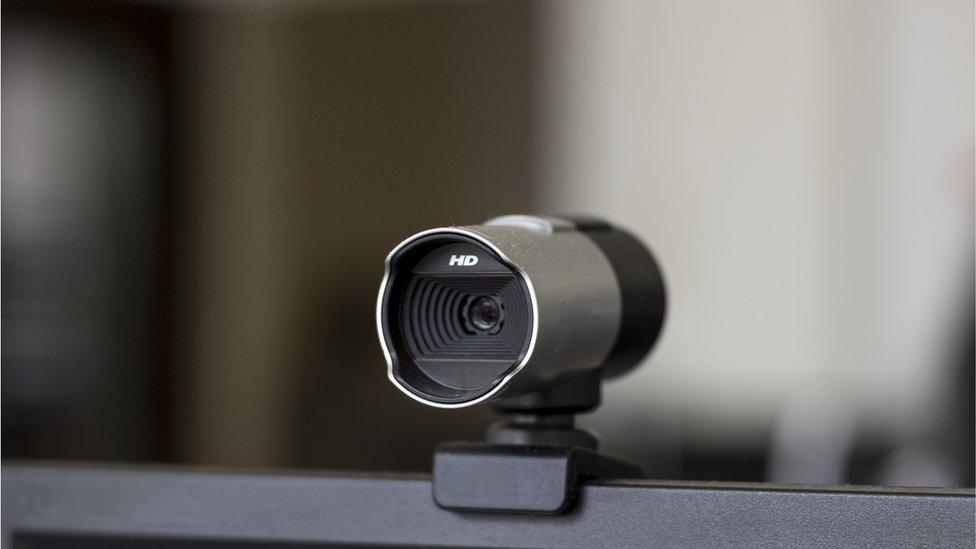
Web cams act as the eyes and ears for teachers communicating with pupils remotely
Dr Lewis Pryce, a maths teacher at Llanfyllin High School in Powys, where the scheme has also been running, said any apprehensions he had initially had since evaporated.
"By now, I see no difference between my video lessons and my traditional lessons," he said.
Gareth Lanagan, an E-sgol co-ordinator, said there had been general "scepticism" of video teaching.
However, he believed the project had shown it could provide a "sliding-doors moment" for pupils studying subjects to which they might not have otherwise had access.
"What we were finding was there's a bit of a postcode lottery at the moment in terms of the subjects that are available to kids in different parts of Wales, but this is balancing that out," he added.
Wales' Education Minister Kirsty Williams said the "innovative" scheme had made "a real difference".
"Taking action to support rural schools has been one of my top priorities over this government's term," she said.
"E-sgol is another example of how we're ensuring equity for pupils, regardless of where they live."
- Published12 October 2018
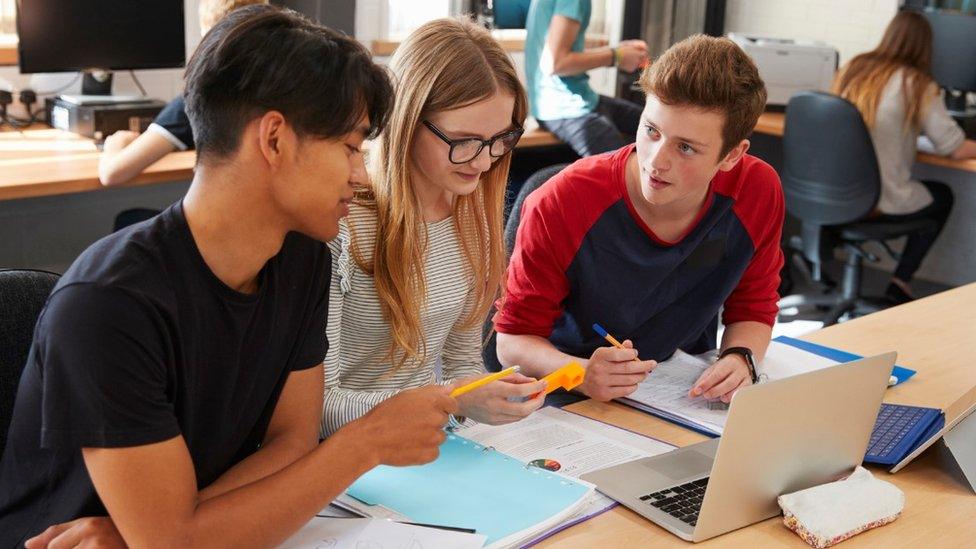
- Published7 September 2018
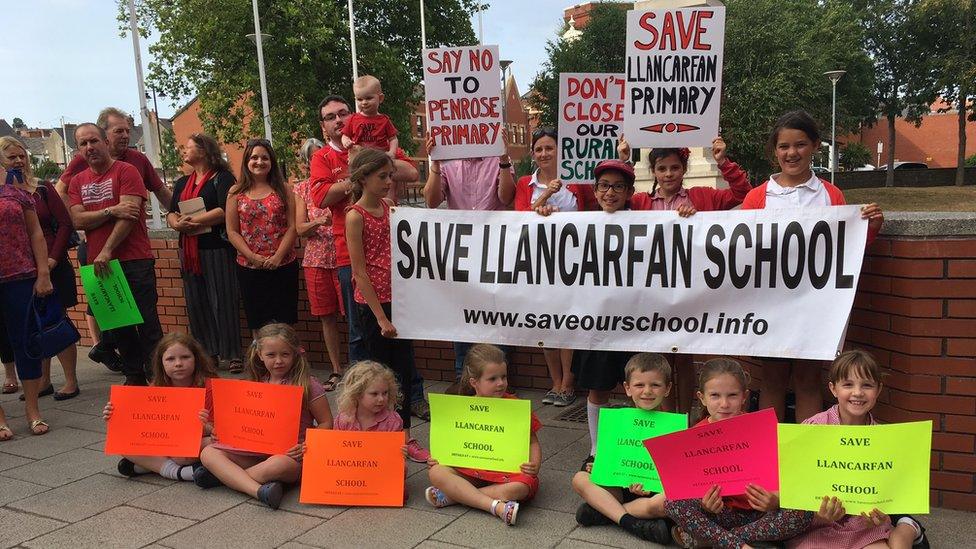
- Published1 November 2018
